Politics
Americans and Westerners Shilling for China

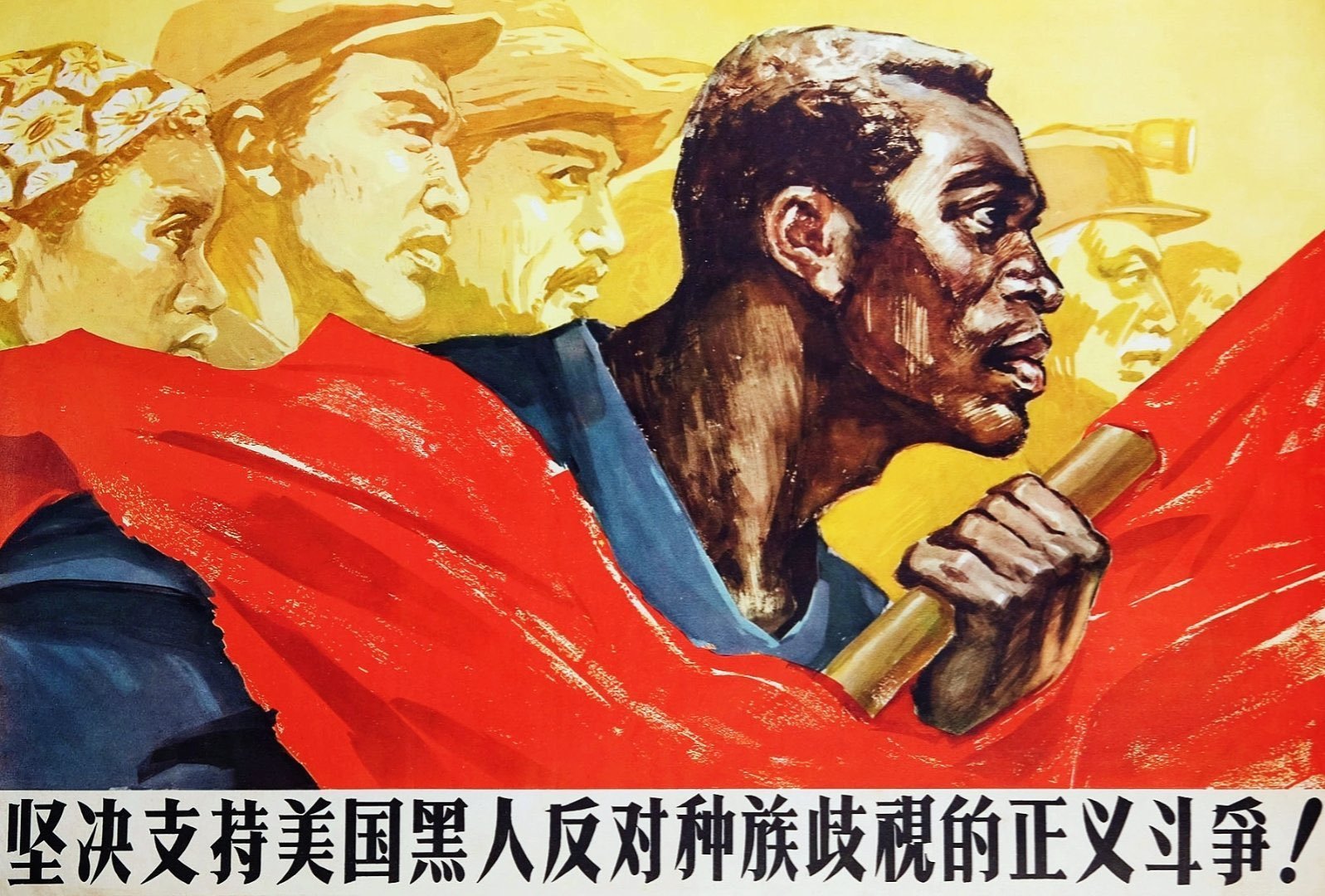 Photo courtesy of Poster House
Photo courtesy of Poster House
Part of the Chinese Communist Party’s disinformation campaign against the United States involves paying foreigners to shill for them on social media or inviting them on sponsored trips to China. These visitors have their travel expenses covered and are only shown the best of everything, creating the illusion of a thriving, unrestricted society.
Afterward, many of these foreigners become convinced that the Western media’s negative reporting on China was false and feel compelled to make videos praising China to “set the record straight.”
However, these videos never mention the restrictions on freedom of speech, religion, assembly, and political affiliation, all of which are easily verifiable by referencing the PRC’s constitution and laws, which are available online in English.
Jimmy O. Yang, the Chinese-American comedian, is in Beijing shilling for the Chinese Communist Party (CCP), raving about high-speed rail, luxury hotels, and how everything is supposedly better than in America. However, his comparison is misleading and one-sided, focusing only on high-end experiences while ignoring the broader realities of life in China.
Ironically, he had to use a VPN to post his video because Instagram and other foreign social media platforms are banned in China, along with most foreign news media. Even more absurd, TikTok—the Chinese-owned platform that is destroying a generation of American youth—is also banned in China.
An example of how Americans and other Westerners shill for China is the YouTube video “China Isn’t What They Told Us” by Two Mad Explorers. Like Jimmy O. Yang’s video, it starts by claiming that one of the biggest misconceptions about Beijing is its air pollution, insisting that the air is much cleaner than people think.
In reality, Beijing has the most terrible air quality in the world. This is not a matter of opinion—numerous websites track global air quality in real time, and Beijing frequently experiences toxic air levels. While both Jimmy O. Yang and Two Mad Explorers happened to film on a clear day, this does not reflect the city’s overall air quality. Although Beijing has made progress in reducing heavily polluted days, the city still experiences multiple days each year when air quality reaches “very unhealthy” levels (AQI > 200).
Most foreigners enjoy their trip to China because they can afford luxuries that ordinary Chinese citizens cannot. They rave about their great hotels while 300 million migrant workers from the countryside live in dormitories, often sharing an outdoor toilet, even in cities like Shanghai and Beijing.
Similarly, Jimmy O. Yang’s video fails to acknowledge that his business-class high-speed rail ticket from Shanghai to Beijing is out of reach for all but the wealthiest Chinese citizens. The $300 USD ticket price exceeds a full month’s salary for half of China’s population. While he marvels at the experience, the reality is that most Chinese workers cannot afford it.
In contrast, Americans—who, on average, earn six times more than their Chinese counterparts—travel much farther, faster, and more cheaply by plane.
To put this in perspective, a plane ticket from New York to Washington, D.C., costs under $91, roughly equivalent to 12 hours of work at the U.S. federal minimum wage. The distance from Shanghai to Beijing is comparable to New York to Chicago, where flights also cost under $90. While China boasts high-speed rail, its affordability remains a privilege for the few, not the many.
The comments on Jimmy Yang’s Instagram post were largely from Chinese accounts, all thanking him for “showing the real China” and “setting the record straight.” This is a common feature of Chinese propaganda—it does not exist in isolation.
Chinese state-backed influence campaigns often involve coordinated engagement on social media. A post will be liked and commented on by a string of Chinese accounts, many with fake names, profile photos, and few or no followers, all echoing the same pro-China sentiment. This pattern is also seen on YouTube trailers for Chinese films. For example, The Wandering Earth—a movie that failed at the U.S. box office—had a YouTube trailer where nearly 100% of visible commenters praised the film and agreed with the narrative that the movie was better than Avatar.
One commenter on Yang’s post even praised his “courage for speaking the truth,” a common talking point among Wumao (paid Chinese propaganda accounts). These accounts either genuinely believe—or are instructed to claim—that criticizing the official narrative in America carries severe consequences. This is ironic, given that the U.S. protects freedom of speech, while China does not.
I couldn’t resist the urge to set the record straight about China’s economy, so I posted about how most of the Chinese population is poor and cannot afford a business-class high-speed rail ticket. Almost immediately, “wumao” accounts swarmed in, calling me names and insisting I was stupid and wrong.
One wumao tried to argue that China’s low-income statistics were misleading because they included pensioners and retirees, claiming these groups would also struggle to buy a ticket in the U.S. This is typical of wumao tactics—they will argue against any criticism of China, no matter how factual it is.
The reality is that China’s elderly are far poorer than their American counterparts. The average retiree in China earns about 3,000 RMB per month (~$415 USD), while rural pensioners receive less than $50 USD per month. In contrast, the mean annual income for individuals aged 65 and older in the U.S. is approximately $75,254, according to the U.S. Census Bureau.
Decades of social engineering and the One-Child Policy have also left China with an aging population and a shrinking youth demographic, with those under 18 now accounting for less than 18% of the population. So, the 50% of China’s population earning less than $300 a month are not children. Given that those under 18 make up less than 18% of the population, the vast majority of these low-income individuals are working-age adults and retirees.
To sum up, both American workers and retirees are far wealthier than their Chinese counterparts. While Yang boasts about his train ride, the average American could afford to fly the same distance with less than half a day’s salary, and even a minimum-wage worker would only need about a day and a half of wages to cover the cost. For most Chinese citizens, luxury train travel remains a rare extravagance, not an everyday convenience.
Yes, the U.S. does not have high-speed rail, but it is both freer and richer than China. It has more than ten times as many airports, and Americans fly more frequently and travel farther in a year than many Chinese do in a lifetime. In the end, anyone claiming to “set the record straight” about China is usually just shilling for the Chinese Communist Party.
The post Americans and Westerners Shilling for China appeared first on The Gateway Pundit.
Politics
Musk Has Gone Quiet About the Launch of His ‘America Party’ — Here’s What We Know
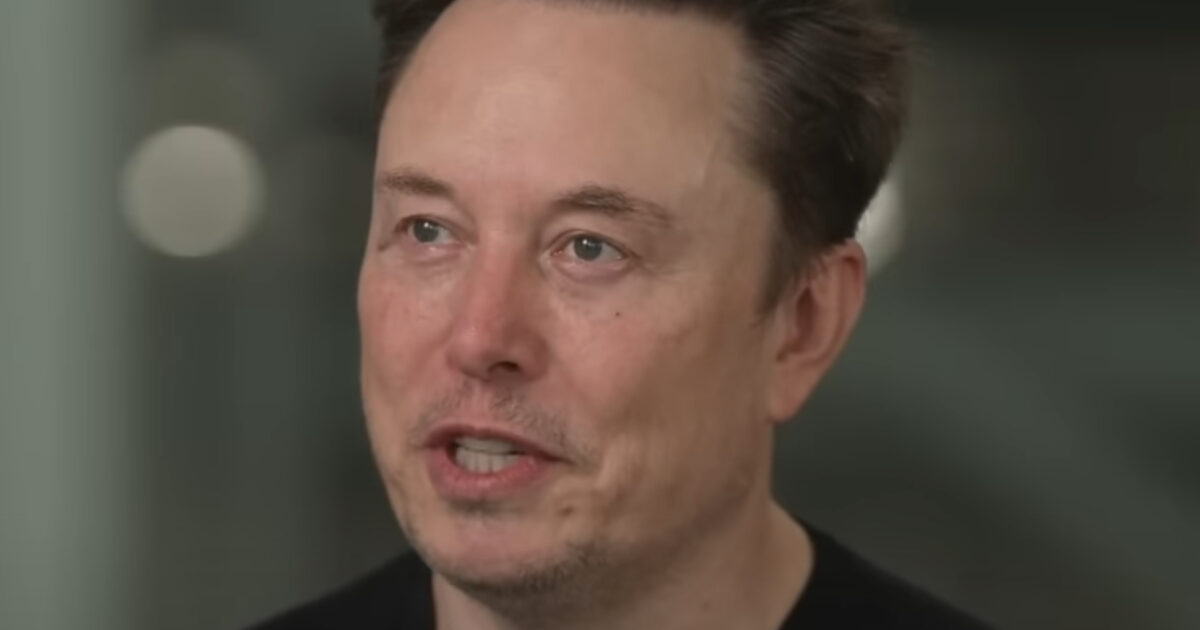
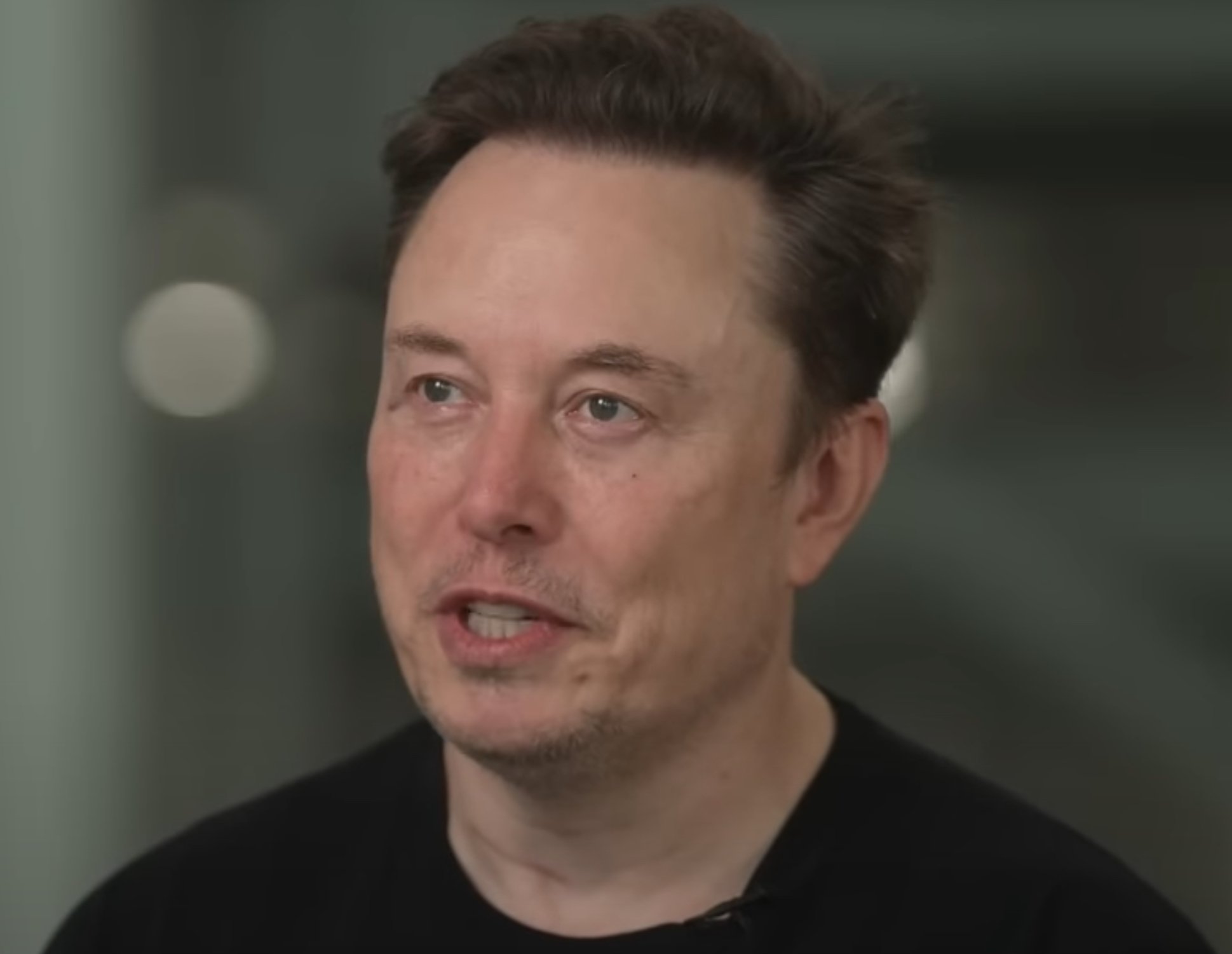
Maybe Elon Musk is more interested in planets than politics.
The mega-billionaire founder of Tesla, owner of X, and the genius behind the pioneering company SpaceX caused a huge stir in early July when he announced the birth of a new third party on the American political scene.
The question now is, whatever became of that?
Musk first broached the subject in a July 4 post on X when he launched a poll to find out what his followers thought. The results weren’t even close.
By a factor of 2 to 1, you want a new political party and you shall have it!
When it comes to bankrupting our country with waste & graft, we live in a one-party system, not a democracy.
Today, the America Party is formed to give you back your freedom. https://t.co/9K8AD04QQN
— Elon Musk (@elonmusk) July 5, 2025
“By a factor of 2 to 1, you want a new political party and you shall have it!” Musk wrote in a July 5 post.
“Today, the America Party is formed to give you back your freedom.”
Naturally, the post caused a splash.
Elon Musk is one of the few names in politics that can even come close to competing with the star power of President Donald Trump. So the idea that he could be mounting an actual challenge to Trump’s Republican Party would have been news indeed.
But as The Daily Caller White House correspondent Reagan Reese wrote in an article published Monday, there appears to be nothing in the way of follow-through coming yet.
“Musk hasn’t even mentioned the effort in over a month, and insiders told the Daily Caller that it seems Musk has begun to realize just how difficult what he pledged to do would be,” Reese wrote.
At the time of Musk’s announcement, Trump branded the idea of a third party “ridiculous.”
NEW: Trump Responds to Elon Musk Starting a Third Party When Asked By a Reporter: “Third parties have never really worked. So he can have fun with it, but I think it’s ridiculous.” pic.twitter.com/qTARvvE1Jx
— Chuck Callesto (@ChuckCallesto) July 6, 2025
Musk, of course, has other things on his plate besides politics.
As USA Today reported last week, Musk’s SpaceX could be nearing a new test flight for its Starship rocket, a 400-foot spacecraft the newspaper called “crucial” to future space ambitions, for Musk and the country as a whole.
Musk is a very public booster of manned trips to Mars — extraterrestrial exploration is vital “for the long-term survival of civilization,” he said, USA Today reported.
Humanity is essentially faced with the prospect of branching out or dying out.
One path means “we stay on Earth forever and then there will be some sort of eventual extinction event,” he wrote in a 2017 paper published by the journal New Space.
According to the electronics news-centric website CNET, Musk told the SXSW festival in Austin, Texas, in 2013 that he wants to die on Mars — “just not on impact.”
There are also very earthly concerns for Musk to consider about starting a party that would compete almost exclusively with Republicans for support.
(Besides Musk’s famously libertarian inclinations — free speech, gun rights, etc. — his popularity among liberals is so low it can be measured in the number of Tesla vehicles damaged and dealerships attacked by leftists.)
According to Reese’s report, a former Department of Government Efficiency consultant who launched a political action committee specifically to counter the threat of a Musk third party said Musk has realized that helping Democrats might not be so helpful to his own interests.
“Make no mistake, there is a real threat to both Elon and to his businesses if the Democrats were to regain control,” James Fishback, CEO of the Arizona investment firm Azoria, told Reese.
“That’s a message that I shared privately with Tesla executives, and that may have been part of the reason why he attenuated his positioning on that.”
Musk can be unpredictable, of course. He’s a generational genius, and geniuses make their own decisions and forge their own paths.
But for now, at least, it appears his third party is going to stay in the background of the political stage.
This article appeared originally on The Western Journal.
The post Musk Has Gone Quiet About the Launch of His ‘America Party’ — Here’s What We Know appeared first on The Gateway Pundit.
Politics
Chinese Ships Collide: Karmic Payback for Years of Bullying the Philippine Coast Guard

 RudolphChen, CC BY-SA 3.0 <https://creativecommons.org/licenses/by-sa/3.0>, via Wikimedia Commons
RudolphChen, CC BY-SA 3.0 <https://creativecommons.org/licenses/by-sa/3.0>, via Wikimedia Commons
On an ongoing basis, the Chinese Coast Guard has harassed and intimidated Philippine Coast Guard and fishing vessels in the South China Sea. China claims almost the entire sea, while the Permanent Court of Arbitration has rejected China’s claims. As the Philippine ships and vessels continues to use territory which the world recognizes as belonging to the Philippines, China has historically used bully tactics, blocking, ramming, and damaging Philippine vessels or shooting them with high powered water cannons. This week, China was dished some karmic justice when two of its bully ships collided, rendering one of them on seaworthy.
This increased aggression by China is one of the primary reasons why the US Navy conducts freedom of navigation patrols in the region.
On Monday, August 11, 2025, two Chinese vessels collided while pursuing Philippine Coast Guard ships near Scarborough Shoal in the South China Sea. The Chinese Coast Guard cutter CCG 3104 struck the PLA Navy guided-missile destroyer Guilin (hull number 164) a botched blockade attempt.
The clash occurred as Philippine Coast Guard vessels BRP Teresa Magbanua and BRP Suluan escorted the fishing vessel MV Pamamalakaya and 35 local fishing boats as part of Manila’s Kadiwa Operation, which delivers fuel and supplies to Filipino fishermen operating in the country’s western exclusive economic zone.
Philippine Coast Guard spokesman Commodore Jay Tarriela said CCG 3104, while chasing the BRP Suluan at high speed, attempted a risky maneuver from the vessel’s starboard quarter. The cutter’s movement caused it to ram into the Guilin, which was approaching from the other side. Analysts believe the Chinese ships were trying to “sandwich” the Philippine cutter, forcing it into the path of a close-range water cannon blast. Poor coordination turned the maneuver into a self-inflicted collision.
The impact left CCG 3104 “unseaworthy,” with significant damage to its bow and forecastle. The Chinese crew did not respond to the Philippine ship’s offer of assistance, and it remains unclear if there were any injuries.
The involvement of the Chinese Navy destroyer Guilin in the Scarborough Shoal collision was considered highly unusual and “overkill” by analysts. PLA Navy warships typically remain “over the horizon” and avoid direct engagement, leaving such confrontations to the Chinese Coast Guard. This made the August 11 incident one of the most severe encounters between Chinese forces and the Philippines, highlighting the escalating tensions in the South China Sea.
Scarborough Shoal has been a persistent flashpoint since China seized it from the Philippines in 2012. Since then, Beijing has waged a steady campaign of harassment against Philippine civilian and government vessels, which has intensified in recent years. In February 2023, a Chinese Coast Guard vessel used a military-grade laser against a 44-meter Philippine Coast Guard ship during a resupply mission.
In March 2024, Chinese ships deployed water cannons on Philippine vessels, shattering a windshield and injuring crew members. The following month, three Chinese cutters rammed and blasted Philippine patrol boats with water cannons near Scarborough Shoal, while others threatened Filipino fishermen at Iroquois Reef. In January 2025, multiple Chinese vessels made aggressive maneuvers toward Philippine fisheries boats, forcing the suspension of a scientific survey.
Beijing justifies these actions through its “nine-dash line” claim, which asserts Chinese historical rights over roughly 90 percent of the South China Sea. The claim is based on a 1947 map created by the Nationalist government and later adopted by the Communist regime, citing historical records dating back to the Han Dynasty. Despite a 2016 international arbitration ruling rejecting the nine-dash line as having “no legal basis,” China has ignored the decision and continued to enforce its claims.
By enforcing the nine-dash line, Beijing seeks to transform these international waters into de facto sovereign territory in a process experts call “maritime territorialisation.”
Strategically, the South China Sea is a vital artery for global trade, with $3.36 trillion worth of goods passing through annually, including 80 percent of China’s energy imports. The waters are also rich in fishing grounds and contain large reserves of oil and natural gas.
Ironically, China is a signatory to the United Nations Convention on the Law of the Sea (UNCLOS), while the United States is not. Yet it is the U.S. that serves as the principal enforcer of the law, and China that stands as its principal violator.
The post Chinese Ships Collide: Karmic Payback for Years of Bullying the Philippine Coast Guard appeared first on The Gateway Pundit.
Politics
$50 Million Bounty on Nicolás Maduro: A New Chapter in Counter-Terror Strategy.
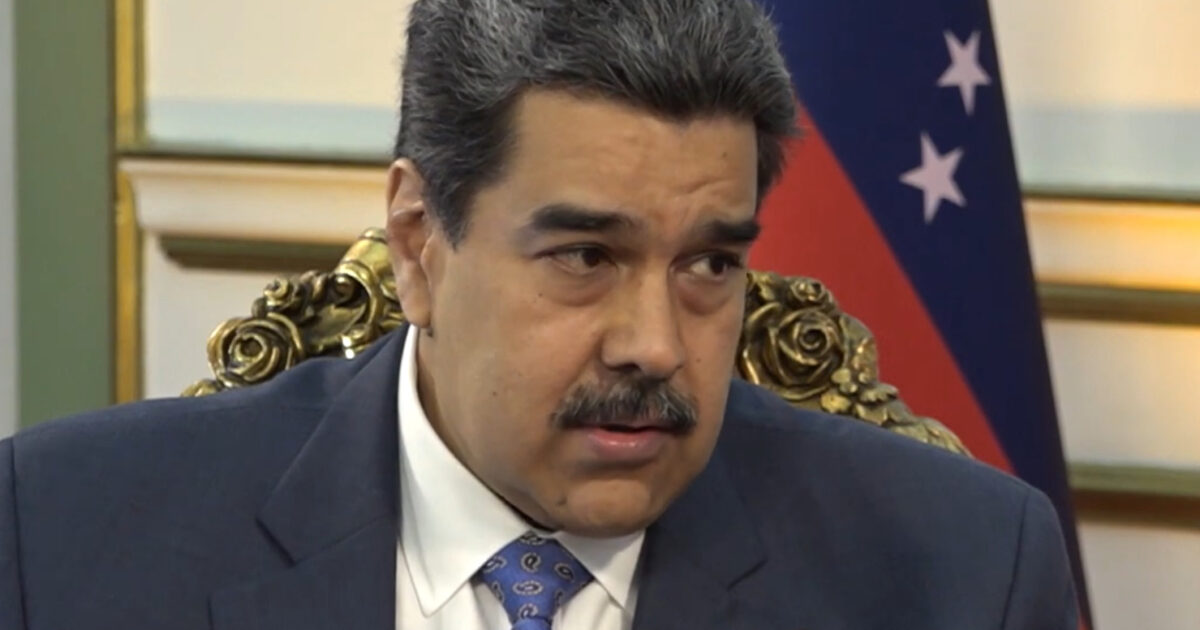
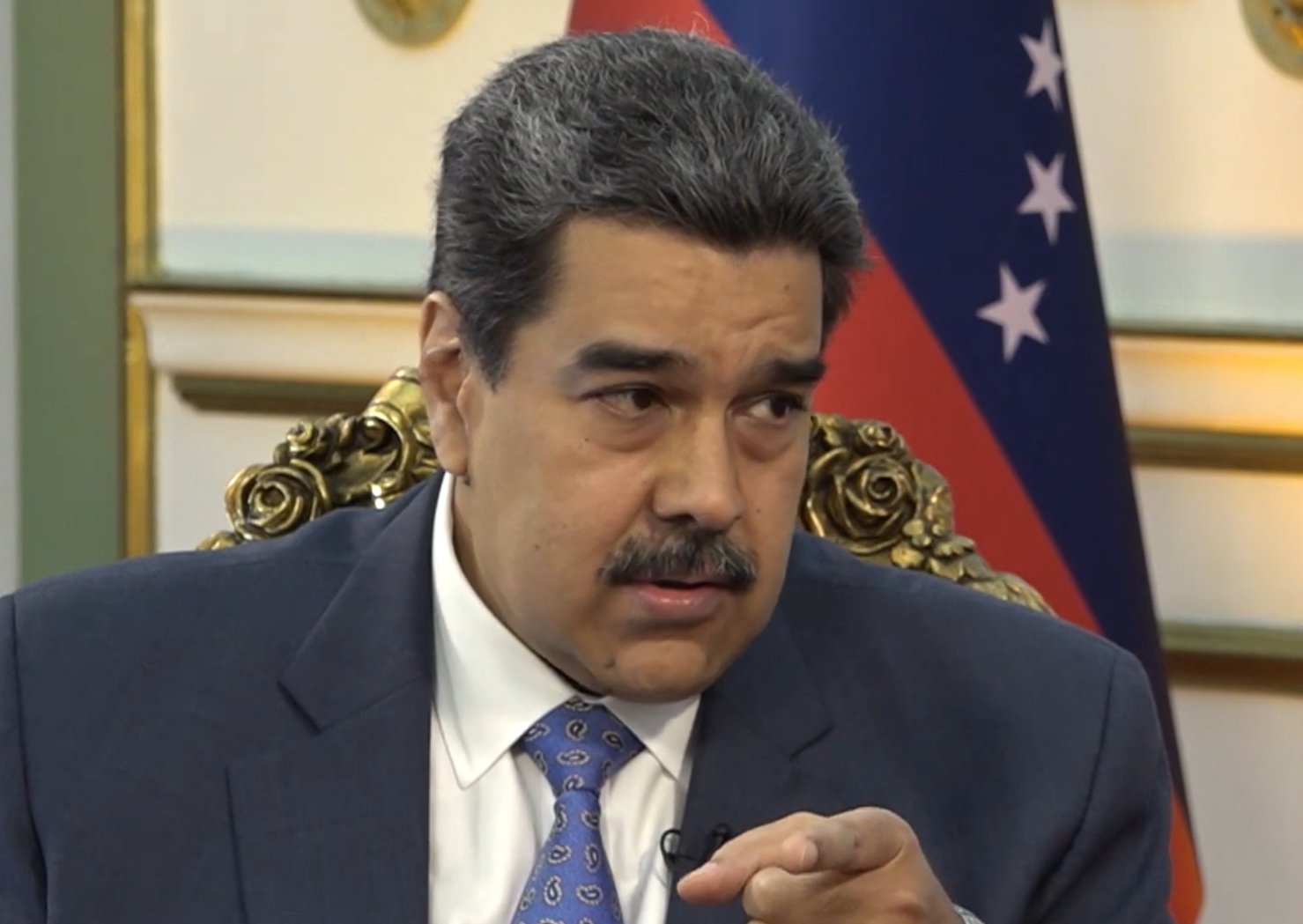
This is a Gateway Hispanic article.
The post $50 Million Bounty on Nicolás Maduro: A New Chapter in Counter-Terror Strategy. appeared first on The Gateway Pundit.
-

 Entertainment5 months ago
Entertainment5 months agoNew Kid and Family Movies in 2025: Calendar of Release Dates (Updating)
-
Tech5 months ago
The best sexting apps in 2025
-

 Tech6 months ago
Tech6 months agoEvery potential TikTok buyer we know about
-
Tech6 months ago
iOS 18.4 developer beta released — heres what you can expect
-

 Politics6 months ago
Politics6 months agoDOGE-ing toward the best Department of Defense ever
-

 Tech6 months ago
Tech6 months agoAre You an RSSMasher?
-

 Politics6 months ago
Politics6 months agoToxic RINO Susan Collins Is a “NO” on Kash Patel, Trashes Him Ahead of Confirmation Vote
-
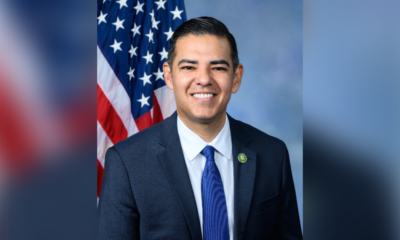
 Politics6 months ago
Politics6 months agoAfter Targeting Chuck Schumer, Acting DC US Attorney Ed Martin Expands ‘Operation Whirlwind’ to Investigate Democrat Rep. Robert Garcia for Calling for “Actual Weapons” Against Elon Musk




